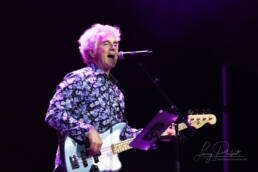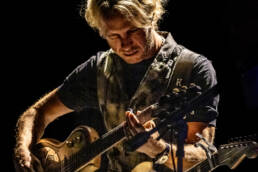Sheryl Crow: The Late Bloomer Who Lit Up the Night
At this concert in Cincinnati, Sheryl saw me and seemed to confuse me with an old boyfriend or stalker, or something, which explains the shitty look she gave me. I lowered my camera and winked at her, and it must have caused her to realize I wasn’t the person she must have originally thought. Which got me the smile in the second one, below.


The Spark That Struck the Chord
Picture Sheryl Crow in 1980s Missouri, a small-town girl with big hair and bigger dreams, teaching music to kids by day, gigging in bars by night. Music wasn’t her first plan—it was her fallback. Raised on her parents’ Motown and Stones records, she’d tinkered with piano since age six, but college at Mizzou was about stability: a music ed degree, a steady gig. Then, in 1987, a chance audition for a McDonald’s jingle in St. Louis flipped the script. “Singing ‘two all-beef patties’ paid my rent,” she’d laugh to Rolling Stone. But it was hearing Stevie Nicks’ “Edge of Seventeen” that lit the fire—she wanted to write, to feel, to matter. Music became her rebellion against a safe life, her ticket to something raw.
From Classroom to Center Stage
Born February 11, 1962, in Kennett, Missouri, Sheryl Suzanne Crow was the third of four kids to Wendell, a lawyer and trumpeter, and Bernice, a piano teacher. A cheerleader and track star, she was all-American—blonde, bright, bound for normalcy. But music tugged harder. Post-college, she taught autistic kids, then chased a hunch to LA in 1986. She scraped by—jingles, waitressing—until landing backup gigs with Michael Jackson on his 1987-1989 Bad tour. It was grueling—18 months, tabloid glare—but it taught her stagecraft.
Her break came late. At 31, after stints with Don Henley and Rod Stewart, she joined the Tuesday Night Music Club, a loose LA collective. Their jam sessions birthed Tuesday Night Music Club (1993)—“All I Wanna Do” hit #2, selling 7 million. She fought sexism (called “too old” for a debut) and burnout, but Sheryl Crow (1996) and The Globe Sessions (1998) proved her staying power. Cancer in 2006—breast, beat it—slowed her, but Detours (2008) and Feels Like Home (2013) kept her rolling. Adopted sons Wyatt (2007) and Levi (2010) anchor her in Nashville now.
Career Canvas and Connections
Sheryl’s a solo act, no fixed band, but the Tuesday Night Music Club—David Baerwald, Bill Bottrell, Kevin Gilbert—shaped her debut. Live, she’s leaned on Peter Stroud (guitar) and Tim Smith (bass). Relationships? She’s dated Eric Clapton (1996), Owen Wilson (1999-2001), and Lance Armstrong (2003-2006)—his doping scandal stung her post-split. She’s sung with Stevie Nicks (“Redemption Day,” 2019) and mentored Maren Morris.
Onscreen, “If It Makes You Happy” rocked ER (1996), and she played herself in Cougar Town (2010). Awards? Nine Grammys—Best New Artist (1994), Best Rock Album (Sheryl Crow, 1996)—plus a 2023 Rock & Roll Hall of Fame induction.
Biggest hits:
- “All I Wanna Do” (Tuesday Night Music Club, 1993) – Co-written with Wyn Cooper and the Club, this #2 US slacker anthem soared.
- “If It Makes You Happy” (Sheryl Crow, 1996) – Sheryl and Jeff Trott’s #10 US growl won a Grammy.
- “Everyday Is a Winding Road” (Sheryl Crow, 1996) – Sheryl, Trott, and Brian MacLeod’s #11 US road-trip vibe clicked.
- “Soak Up the Sun” (C’mon, C’mon, 2002) – Sheryl and Trott’s #17 US summer jam radiated ease.
Shadows in the Sunlight
Sheryl’s controversies simmer quietly. The 1993 Tuesday Night Music Club fallout was messy—co-writers claimed she hogged credit; Kevin Gilbert’s 1996 overdose death fueled whispers she’d “used” the group. She told Billboard in 1998, “I was just the voice.” Her 2005 split with Armstrong—weeks before her cancer diagnosis—sparked tabloid pity; his 2012 doping confession later cast her as “dodged a bullet.” A 2011 Walmart flap—she nixed an album deal over their gun sales—drew conservative ire on X: “Stick to singing!” Cancer battles (2006, 2011 benign tumor) made news, but she’s dodged sleaze—her drama’s personal, not public.
The Road Keeps Winding
From a Missouri classroom to rock’s pantheon, Sheryl Crow’s turned late starts into lasting art. At 63 in 2025, she’s touring Evolution (2024), her voice a warm, worn treasure. She didn’t chase fame—she earned it, proving age and odds bend to talent.








